March 6, 2014 •
California Lawmakers Proposing Tighter Gift Limits
Lawmakers called a press conference to announce a package of bills to make major upgrades to government accountability rules and practices. Senator Ricardo Lara and Kevin de Leon have filed Senate Bill 1441 through Senate Bill 1444 as spot bills, […]

Lawmakers called a press conference to announce a package of bills to make major upgrades to government accountability rules and practices. Senator Ricardo Lara and Kevin de Leon have filed Senate Bill 1441 through Senate Bill 1444 as spot bills, with the intention to add substantive provisions at a later date.
The bills will include a ban on fundraisers at lobbyists’ homes and a ban on all gifts from lobbyists.
There is also a proposal to lower the current non-lobbyist gift limit of $440 to $200 for state and local officials.
February 25, 2014 •
Philadelphia Gift Ordinance Advances Out of Committee
A proposed ordinance setting a dollar limit for gifts has advanced out of committee. On February 24, the City Council’s Committee on Law and Government voted to submit the bill for Council action. The proposed ordinance prohibits gifts exceeding $99 […]
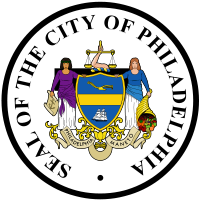
A proposed ordinance setting a dollar limit for gifts has advanced out of committee. On February 24, the City Council’s Committee on Law and Government voted to submit the bill for Council action.
The proposed ordinance prohibits gifts exceeding $99 per calendar year to any city officials or employees, and bans all cash gifts.
The ordinance could pass as early as next week.
February 10, 2014 •
Hawaii State Ethics Commission Concerned About SB 2423
On February 7, the Senate Committee on Education reviewed testimony from the Hawaii State Ethics Commission regarding its concerns about SB 2423. Introduced in January, the bill authorizes the Department of Education to accept gifts or donations based on criteria […]

On February 7, the Senate Committee on Education reviewed testimony from the Hawaii State Ethics Commission regarding its concerns about SB 2423. Introduced in January, the bill authorizes the Department of Education to accept gifts or donations based on criteria established by the Board of Education. The commission maintains all state agencies and departments should be held to the same standards and codes of conduct; furthermore, it would be unnecessary and imprudent to allow the department to accept gifts contrary to the state ethics code.
SB 2423 also permits schools to participate in charitable fundraising activities in conjunction with 501(c)(3) tax-exempt organizations. Though perhaps well-intended, the bill is extremely broad and raises numerous concerns in terms of application and oversight.
During its testimony, the commission urged the committee to defer the bill until after the Commission has an opportunity to thoroughly consider the issues involved.
January 23, 2014 •
Gift Policy for Utah OLRGC Updated
The gift policy for the Utah Office of Legislative Research and General Counsel has been updated. In the revised Policies and Procedures Manual, gifts having a value over $5 are prohibited. Some gifts are permitted within limited exceptions, including gifts […]
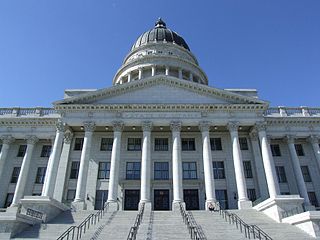
The gift policy for the Utah Office of Legislative Research and General Counsel has been updated. In the revised Policies and Procedures Manual, gifts having a value over $5 are prohibited. Some gifts are permitted within limited exceptions, including gifts not associated with the employee’s position or duties within the office. Additionally, the policy delineates what are permissible expenses for meals, tickets, reimbursements, and gifts when an employee attends a conference, seminar, training session, meeting, site visit, or other similar gathering connected with the employee’s employment.
Photo of the Utah State Capitol courtesy of Robert Cutts on Wikimedia Commons.
January 13, 2014 •
Ethics Bill Introduced in Kentucky
Kentucky could see updates to its legislative ethics code this session. House Bill 3 would amend the state ethics code to include recommendations of the Legislative Ethics Commission, including: Establishing a “no cup of coffee” rule for gifts from lobbyists […]

Kentucky could see updates to its legislative ethics code this session.
House Bill 3 would amend the state ethics code to include recommendations of the Legislative Ethics Commission, including:
- Establishing a “no cup of coffee” rule for gifts from lobbyists and employers to legislators;
- Creating a prohibition on lobbyists and employers paying for out-of-state travel for legislators;
- Including employers of legislative and executive branch lobbyists in the prohibition on campaign contributions during a regular legislative session;
- Requiring the reporting of advertising costs for advertising supporting or opposing legislation; and
- Including legislative candidates in the lobbyist gift prohibition.
The Legislative Ethics Commission has included those recommendations for a number of years in its report to the Legislative Research Commission. The existing ethics law was enacted in 1993.
January 13, 2014 •
Virginia Governor Establishes Gift Rules for Executive Branch Employees
Terry McAuliffe was sworn in as Governor of Virginia this weekend, and already he is making ethics a priority for his administration. Executive Order 2 establishes a gift limit for all executive branch officials and employees, prohibiting acceptance of gifts […]
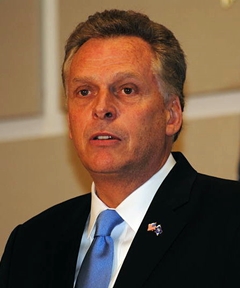
Terry McAuliffe was sworn in as Governor of Virginia this weekend, and already he is making ethics a priority for his administration. Executive Order 2 establishes a gift limit for all executive branch officials and employees, prohibiting acceptance of gifts exceeding $100 per calendar year. Gifts from lobbyists and principals are restricted to $25.
The order does allow for some exceptions, such as excluding items of $25 or less from the definition of gift, and allowing for receipt of certain items while engaging in an activity serving a legitimate public purpose, such as food and refreshments served at certain events.
These restrictions became effective upon his signature on January 11, 2014.
The full text of Executive Order 2 can be viewed here.
Photo of Gov. Terry McAuliffe by Edward Kimmel on Wikimedia Commons.
January 7, 2014 •
New Jersey Gubernatorial Inauguration Set for January 21
The inauguration for New Jersey Governor Chris Christie will be held Tuesday, January 21, 2014. The day will begin with a morning prayer service in Newark followed by a swearing-in ceremony and inaugural address in Trenton. Evening festivities include an […]
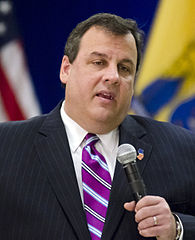 The inauguration for New Jersey Governor Chris Christie will be held Tuesday, January 21, 2014. The day will begin with a morning prayer service in Newark followed by a swearing-in ceremony and inaugural address in Trenton. Evening festivities include an inaugural celebration at the Great Hall on Historic Ellis Island.
The inauguration for New Jersey Governor Chris Christie will be held Tuesday, January 21, 2014. The day will begin with a morning prayer service in Newark followed by a swearing-in ceremony and inaugural address in Trenton. Evening festivities include an inaugural celebration at the Great Hall on Historic Ellis Island.
The Governor selected three charities to benefit from the proceeds raised during his second inauguration. Contribution limits do apply for inaugural fundraising events. No person, candidate, candidate committee, joint candidates committee, political committee or continuing political committee may contribute more than $500 in the aggregate to any gubernatorial inaugural fundraising event or events, notwithstanding any contribution made to any candidate for the gubernatorial election. Any contribution given in excess of the $500 aggregate limit will be returned to the contributor.
Similarly, a corporation, association, or labor organization may also contribute to a gubernatorial fundraising event, provided its contribution – when added to that of any related or affiliated corporation, association, or labor organization – does not exceed $500. Partnerships, LLPs, and LLCs may not make contributions as an entity; any contribution made by check or other written instrument drawn on such an account will be considered a contribution from the individual who signed the check or written instrument.
Tickets to gubernatorial fundraising events may be given to legislators and public officials provided there is no intent to influence the official in any matter related to his or her official duties. Lobbyists may provide gifts of entertainment, food, beverages, or tickets to events as long as the aggregate value of all gifts does not exceed $250 per calendar year.
Photo of Governor Chris Christie courtesy of the Bob Jagendorf on Wikimedia Commons.
January 7, 2014 •
Virginia Ethics Reform on the Horizon
The Virginia General Assembly may be taking steps toward substantive ethics reform in its upcoming session. Ethics bills have already been prefiled in anticipation of the session’s start on January 8, most notably Senate Bill 274, limiting gifts to officers […]
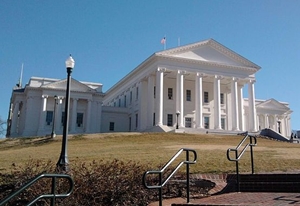 The Virginia General Assembly may be taking steps toward substantive ethics reform in its upcoming session. Ethics bills have already been prefiled in anticipation of the session’s start on January 8, most notably Senate Bill 274, limiting gifts to officers and employees of the state and local governments to $100 per calendar year, and requiring disclosure of gifts to immediate family members.
The Virginia General Assembly may be taking steps toward substantive ethics reform in its upcoming session. Ethics bills have already been prefiled in anticipation of the session’s start on January 8, most notably Senate Bill 274, limiting gifts to officers and employees of the state and local governments to $100 per calendar year, and requiring disclosure of gifts to immediate family members.
Virginia does not currently limit the amount of gifts officials and employees may receive, and many called for reform after Gov. Bob McDonnell became embroiled in scandal after accepting thousands of dollars worth of gifts from Star Scientific CEO Jonnie Williams. Williams had also made gifts to McDonnell’s wife and daughters, prompting the addition of disclosure requirements to immediate family members.
Photo of the Virginia Capitol courtesy of Varmin on Wikimedia Commons.
January 2, 2014 •
Chicago Board of Ethics Posts New Informational Brochures
The Chicago Board of Ethics recently posted two new publications on its website, both of which outline ethics restrictions for city officials. The first addresses, among other things, general conflicts of interest, lobbying on behalf of others, financial interests in […]
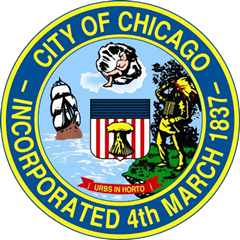 The Chicago Board of Ethics recently posted two new publications on its website, both of which outline ethics restrictions for city officials.
The Chicago Board of Ethics recently posted two new publications on its website, both of which outline ethics restrictions for city officials.
The first addresses, among other things, general conflicts of interest, lobbying on behalf of others, financial interests in city contracts, financial disclosure requirements, gifts, revolving door provisions, and penalties for ethics violations.
The second addition is a publication delineating what city employees and officials may or may not do in terms of contracting with the city.
Both documents are intended to provide a basic understanding of ethics rules and are not deemed legal advice.
January 2, 2014 •
WA Legislative Ethics Board Dismisses Complaint, Looks to Legislature for Guidance on Free Meals to Lawmakers
The Legislative Ethics Board in Washington dismissed a complaint related to Washington state lawmakers accepting free meals from lobbyists. Washington law prohibits public officials from accepting free meals on more than “infrequent occasions.” However, there is no enforceable standard for […]
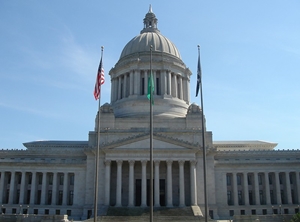 The Legislative Ethics Board in Washington dismissed a complaint related to Washington state lawmakers accepting free meals from lobbyists. Washington law prohibits public officials from accepting free meals on more than “infrequent occasions.” However, there is no enforceable standard for “infrequent occasions.”
The Legislative Ethics Board in Washington dismissed a complaint related to Washington state lawmakers accepting free meals from lobbyists. Washington law prohibits public officials from accepting free meals on more than “infrequent occasions.” However, there is no enforceable standard for “infrequent occasions.”
The complaint was prompted by a reported $65,000 being spent on free meals by the state’s most active lobbyists in the first four months of 2013.
The Ethics Board is turning to the Legislature for an enforceable standard for the ethics law. If the Legislature fails to do so in the upcoming session beginning in January, the board plans to establish its own rules.
The board also noted in its decision the lack of an enforceable standard affects the consistency of lobbyist reports in terms of what is being reported.
Photo of the Washington State Capitol by Nikopoley on Wikimedia Commons.
January 2, 2014 •
Georgia Lobbyist Gift Rules Set to Take Effect
Effective January 1, 2014, new rules generally ban lobbyists from providing public officials with gifts valued at more than $75 or any tickets to games, concerts, and other recreational events. The ethics overhaul in House Bill 142 provides the state’s […]
 Effective January 1, 2014, new rules generally ban lobbyists from providing public officials with gifts valued at more than $75 or any tickets to games, concerts, and other recreational events. The ethics overhaul in House Bill 142 provides the state’s first legislative limitation on gifts to public officials.
Effective January 1, 2014, new rules generally ban lobbyists from providing public officials with gifts valued at more than $75 or any tickets to games, concerts, and other recreational events. The ethics overhaul in House Bill 142 provides the state’s first legislative limitation on gifts to public officials.
Exceptions to the $75 limit include committee dinners, dinners for caucuses, and certain lobbyist-funded travel. The $75 cap is per occurrence and per lobbyist.
Although the bill was signed in May, 2013, lobbyists were permitted to provide unlimited gifts until the January 1 effective date.
December 20, 2013 •
Philadelphia Board of Ethics Struggles to Enact Gift Regulations
The Philadelphia Board of Ethics staff has released a revised gift proposal following claims its initial proposed limits were too lax. The new suggested limits are a ban on gifts of more than $100, with a limit of $25 on […]
 The Philadelphia Board of Ethics staff has released a revised gift proposal following claims its initial proposed limits were too lax. The new suggested limits are a ban on gifts of more than $100, with a limit of $25 on cash gifts, per calendar year from any source not a family member of the recipient. The initial limits proposed were $200 per year, with a cap of $50 for cash gifts, resulting in outcry from watchdogs.
The Philadelphia Board of Ethics staff has released a revised gift proposal following claims its initial proposed limits were too lax. The new suggested limits are a ban on gifts of more than $100, with a limit of $25 on cash gifts, per calendar year from any source not a family member of the recipient. The initial limits proposed were $200 per year, with a cap of $50 for cash gifts, resulting in outcry from watchdogs.
The new proposed limits were greeted with skepticism, however, because the provision allowing for cash gifts remained. Executive Director Shane Creamer insisted the Board cannot ban cash gifts altogether because the city code permits cash gifts, prompting the Board to decide on formally requesting the City Council to consider amending the code.
The suggested limits could drop yet again before the Board votes, as a number of Board members suggested a $50 annual limit was preferable. The Board could potentially vote on the rules at its January meeting.
December 9, 2013 •
Los Angeles, California Keeps Gift Limit at $100
City Council President Herb Wesson abandoned a plan to increase the value of gifts lawmakers can accept from companies seeking city contracts, opting to leave the amount unchanged at $100. In October, City Council instructed the city’s lawyers to draft […]
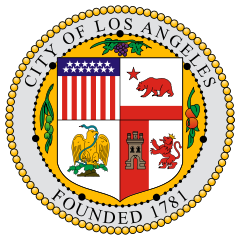 City Council President Herb Wesson abandoned a plan to increase the value of gifts lawmakers can accept from companies seeking city contracts, opting to leave the amount unchanged at $100.
City Council President Herb Wesson abandoned a plan to increase the value of gifts lawmakers can accept from companies seeking city contracts, opting to leave the amount unchanged at $100.
In October, City Council instructed the city’s lawyers to draft an ordinance increasing the gift limit to $150, despite a recommendation by the Ethics Commission to prohibit most gifts of any value.
The city’s ethics law will continue to bar lobbyists from giving gifts to elected officials and other high-level decision makers.
Those who do not have business before the city will continue to be permitted to give gifts to elected officials within the state limit of $440 per year. –
November 18, 2013 •
Trenton Ethics Board Establishes Code of Ethics
Trenton’s recently established ethics board passed the city’s first code of ethics last week. The long-awaited code outlines behavioral guidelines for elected officials, city employees, and representatives serving on city boards. Included are provisions regarding conflicts of interest, receipt of […]
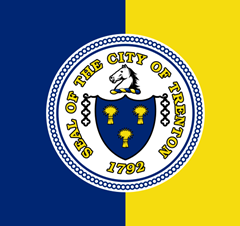 Trenton’s recently established ethics board passed the city’s first code of ethics last week. The long-awaited code outlines behavioral guidelines for elected officials, city employees, and representatives serving on city boards. Included are provisions regarding conflicts of interest, receipt of gifts, and financial disclosure.
Trenton’s recently established ethics board passed the city’s first code of ethics last week. The long-awaited code outlines behavioral guidelines for elected officials, city employees, and representatives serving on city boards. Included are provisions regarding conflicts of interest, receipt of gifts, and financial disclosure.
Additionally, the code permits the ethics board to investigate possible ethics violations.
The code will go to the state Department of Community Affairs before it is enacted and added to the code book.
State and Federal Communications, Inc. provides research and consulting services for government relations professionals on lobbying laws, procurement lobbying laws, political contribution laws in the United States and Canada. Learn more by visiting stateandfed.com.


